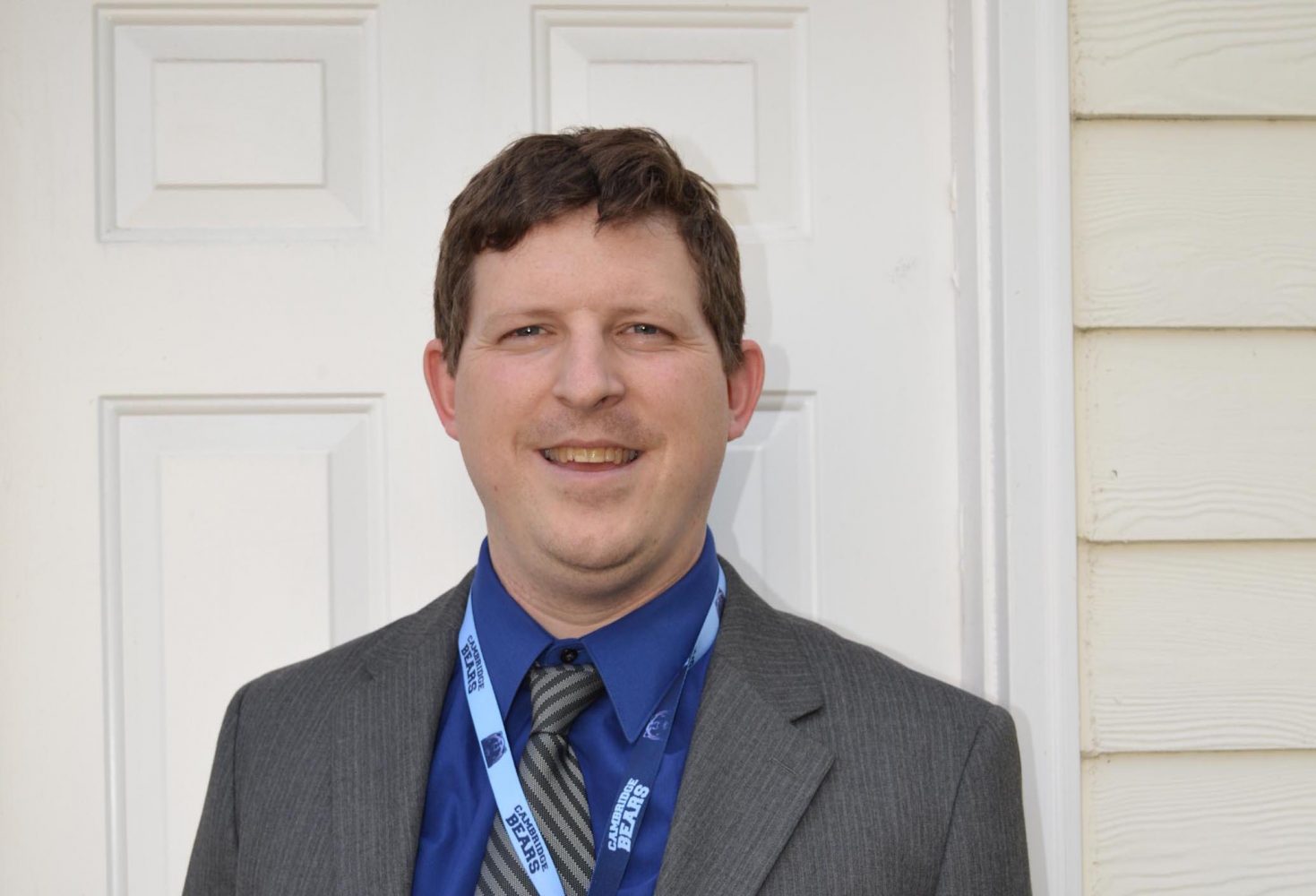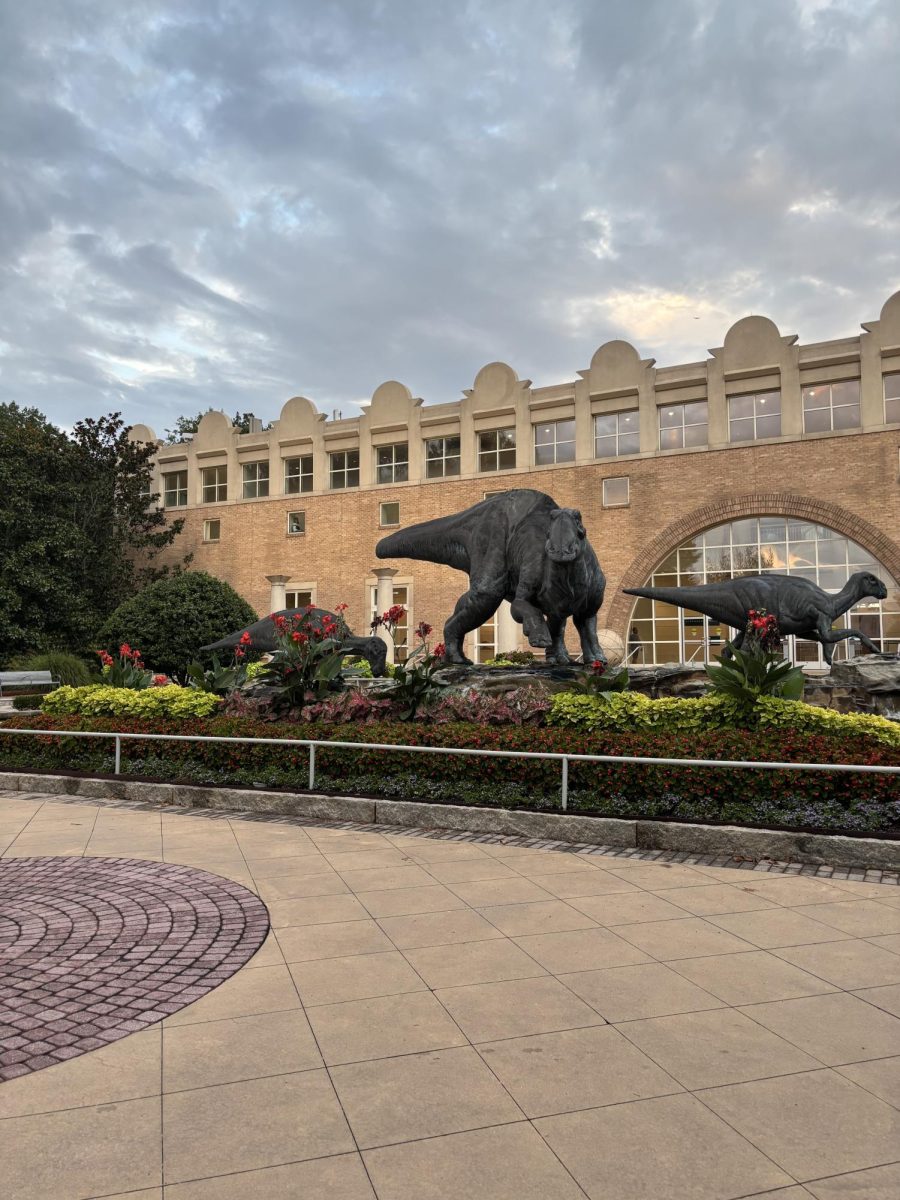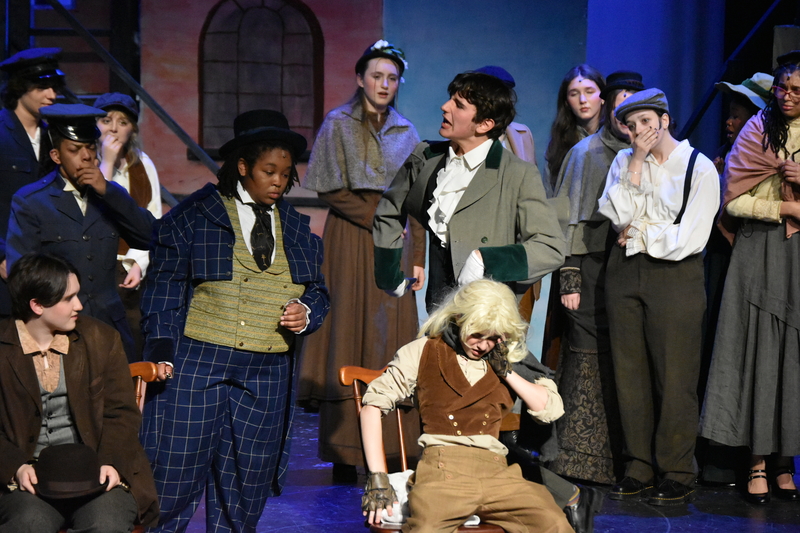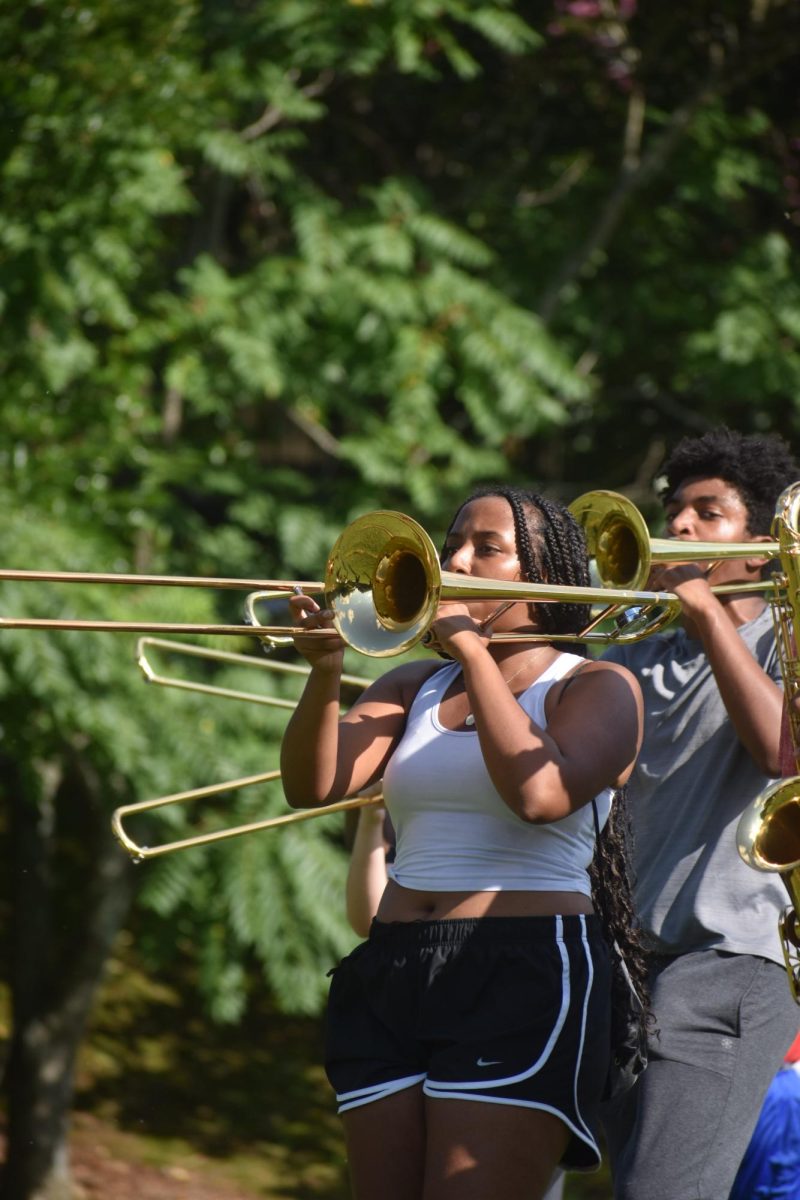
Among the returning students and staff who flooded Grady’s halls Aug. 4, several familiar faces were missing, one being James Campbell.
Campbell, who taught literature and social studies for seven years at Grady, submitted his official resignation in June. This school year he will be teaching at Cambridge High School in Fulton County.
“He really made me laugh,” said Roderick Pope, AP United States History and AP European History teacher. “Jim Campbell made me smile. … He is a funny man, and the school where he’s going is very lucky to have him. He is incredibly intelligent, and I will miss him greatly.”
During his time at Grady, Campbell taught six different classes: ninth-grade literature, 10th-grade literature, 12th-grade literature, AP World History, AP United States Government and Politics, and AP Comparative Government and Politics.
“I love learning,” Campbell said. “Teaching not only gives me an excuse to continue to learn, but also to help others learn.”
Campbell received his bachelor’s degree from the University of Delaware where he majored in economics and English and minored in theater. He also received a master’s in public administration from San Jose State University and is currently taking graduate classes in political science at Georgia State University.
Before he taught at Grady, Campbell worked in the financial aid and registrar’s offices at Stanford University. After 10 years of working a series of jobs, he decided to become a teacher through the non-profit organization Teach For America, which recruits candidates new to teaching so they can serve low-income communities and help eliminate educational inequity.
“When my wife finished her doctoral degree at Stanford, I started thinking about what I wanted to do for a career,” Campbell said. “Before that, I had basically had a series of jobs, but not really a career. I decided I wanted to be a teacher and that I wanted to work in a city. I researched programs to help with that transition and decided Teach for America was the best fit. I was actually an odd candidate for them. Most of the Teach for America are right out of college and only teach for a handful of years. I had been working for almost ten years and wanted to be a teacher for the rest of my life.”
Teach for America assigned Campbell to Grady. Seven years later Campbell had nothing but praise for his peers and superiors.
“All of my colleagues and the administrators here have contributed to my learning how to teach,” Campbell said. “I have learned so much from them and am so grateful to them.”
At Grady, Campbell is known for his dynamic teaching style that allowed his students to immerse themselves in their subjects.
“He wasn’t afraid to talk to us like we were adults,” Senior Talia Lockridge said. “He wasn’t reading out of a book; you almost never saw him using the book. … I guess that’s part of the AP experience, but it was also that he was teaching so much off the top of his head, and there was so much that you knew he [had] learned that he wanted us to know that was really great.”
Lockridge says that Campbell motivated his students by expecting their best and believing that they could achieve it.
“He never seemed to kind of give up on me,” Lockridge said. “A lot of teachers don’t, you know, if they don’t think you can be something they don’t pay a lot of attention to certain kids. … He never gave off any kind of attitude or anything like that or made me feel unwelcome so that was great.”
In addition to teaching his classes, Campbell also sought to improve literacy among the student body.
“He had such a deep sense of commitment to education for the sake of education and wanting people to be educated to expand their own horizons,” Pope said. “He was tireless in that. I think sometimes we forget that he was important when it came to the reading classes, and he was really a proponent [of the idea that one of] our biggest problems [is] that our kids can’t read; they cannot read on grade level. Campbell really kind of pushed that point and wanted to make sure that the kids that couldn’t read could read and so that was really important to him.”
In 2010, Campbell modified Great Leaps, a special education reading program, by creating a peer mentoring program in which seniors helped freshmen that were struggling with reading. This gave the program the one-on-one support it needed.
“The program worked well enough that, in the following year, we implemented it across the school for the entire freshman class,” Campbell said. “However, the year after that, 2012-13, the school eliminated student interns for teachers. Since the reading coaches were my interns, the program ended when internships were eliminated. … During the two years that the program ran, we helped a lot of students. I’d like to think that had some small impact on the school and those students.”
Campbell also worked with a group of teachers to help integrate literacy into social studies as a part of the common core in the district for two years. In addition, he started both the Academic Decathlon and Quiz Bowl teams at Grady, which both competed for one year. His contributions did not go unnoticed by his students.
“He contributed a level of professionalism [to Grady],” Lockridge said. “I know this is weird, but he seemed to really believe in Grady. He never said that there was stuff he knew we couldn’t do. He always believed in his students; he really liked the school and worked to make it better. He loved Dr. Murray. … I think that he really believed in what Grady could be.”
Campbell says that his experience at Grady has changed his perspective on education and teaching.
“Before I came to Grady, I had a lot of very uninformed ideas about how schools worked and how they could work better,” Campbell said. “Scott Stephens, a former Grady English teacher, articulated what I think about education today. ‘They need to trust teachers to teach.’ I think education today is overburdened by a lot of regulations that don’t help students learn and, in fact, detract from student learning. Teachers are the people who actually do the work of the educational enterprise and, as such, are in the best position to evaluate which ideas contribute to the success of that enterprise.”
With Campbell’s absence, Louis Sartor is now teaching the AP Government classes and Sara Looman is teaching all of the AP World History classes.
“I really don’t know how Grady will change in the year to come,” Campbell said. “I will admit that, with a new superintendent and new principal, staying at Grady entailed more uncertainty than leaving. Grady has always been unique. I have always felt a pressure from outside our school to make us conform to norms, even if doing so would be to the detriment of our students. I do not know that we will cease to be unique, but I certainly worry about that.”
As the school transitions into the new leadership, Campbell offers final advice.
“I want to say ‘Keep calm and Grady on,’” Campbell said. “But that sounds hypocritical coming from someone who’s leaving. I guess this isn’t advice, but all I want to say to the students and staff is that I love you and I’ll miss you.”













